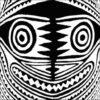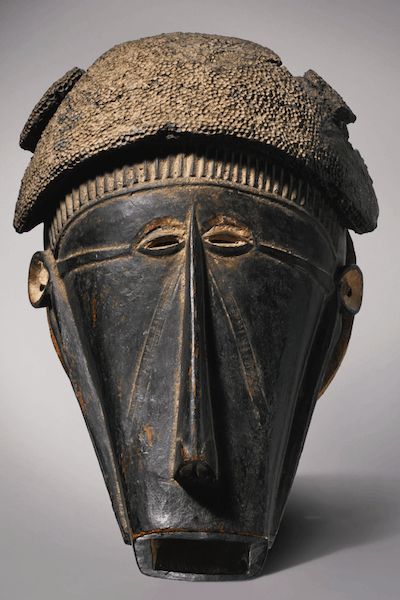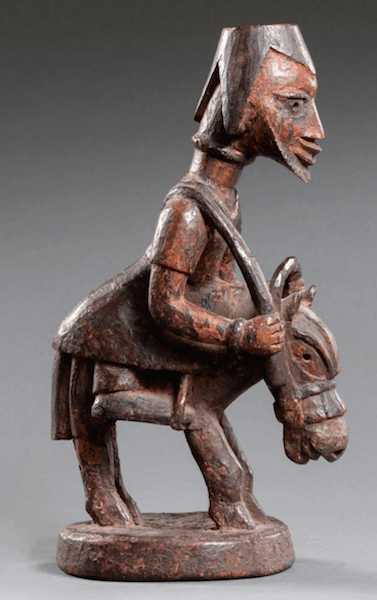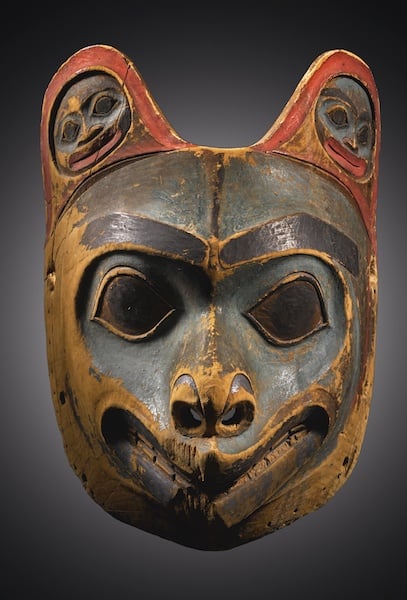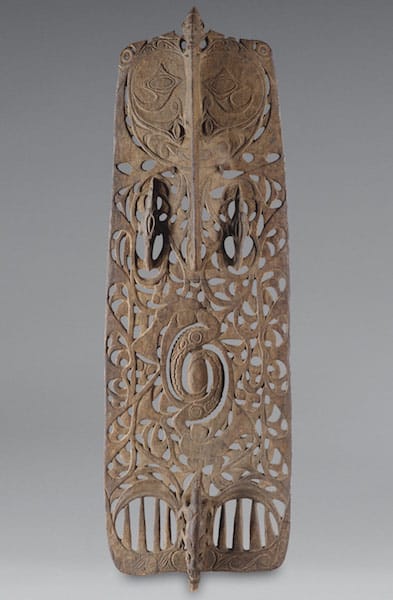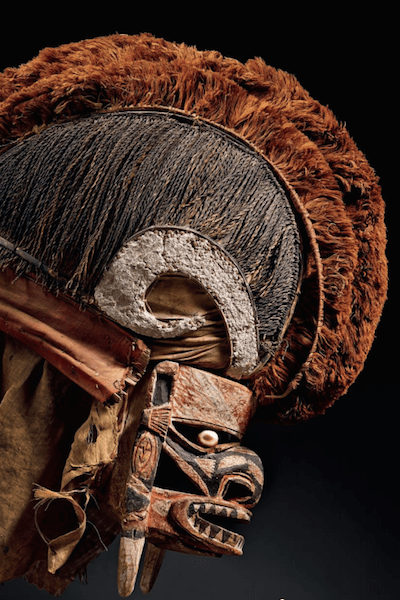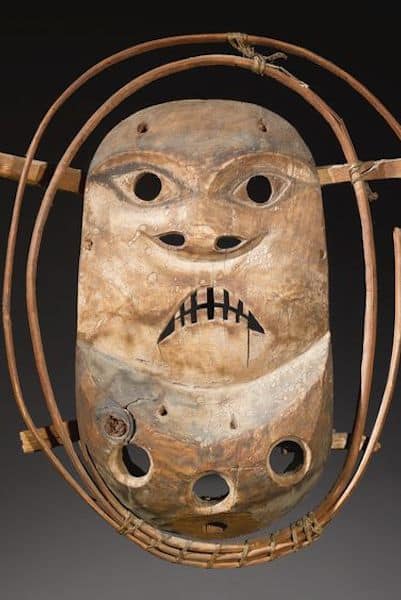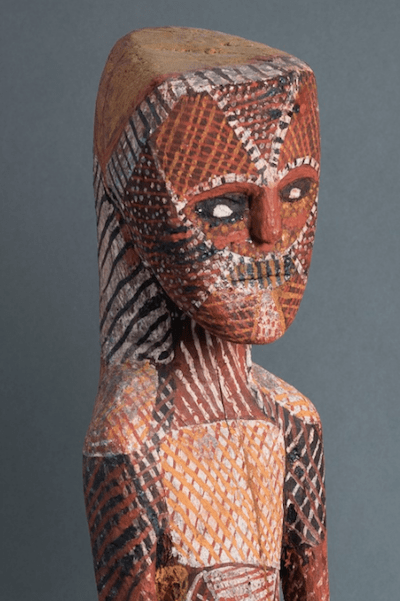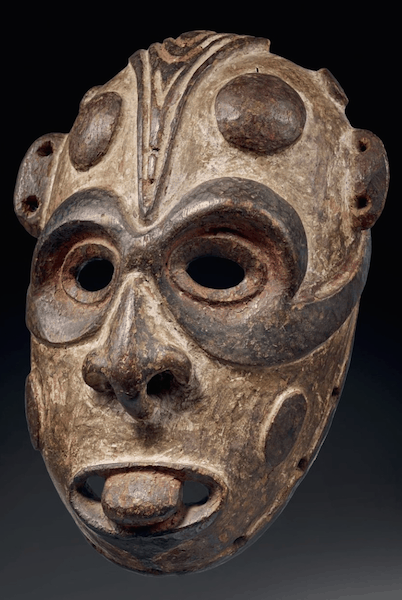Primitive Art
Primitive art is the politically incorrect name for Tribal art or Ethnographic art but I think the term primitive can still be used. Many pieces of Primitive art have a raw and shocking clarity that makes them superior to contemporary art.
Most collectors of tribal art want the older pieces, the pieces unadulterated by Western Civilized art. Picassco, Gauguin and Mattise, and many other great artists realized primitive when it comes to art does not mean lesser. In many ways, Primitive art is fundamentally better. It is not restricted by realism. The whole cubistic art movement and primitivism would not exist without primitive art.
Types of Primitive Art
Primitive Art comes from four major regions. Oceanic or Pacific Art includes all the islands of the Pacific Ocean and Papua New Guinea. African art includes all the countries in Africa but main not ancient Egypt. Native art is the name given to the art of North America and Canada. Aboriginal art is tribal art from Australia. The art from Indonesia is considered as Asian art although much of it is old primitive art.
Old tribal art has numerous different object types. These objects include masks sculpture weapons and utilitarian objects. The most collectible Primitive Art objects are sculpture and masks.
I buy and sell Primitive Art. If you have a piece of tribal art to sell please feel free to contact me. If you just want to know what your Primitive art is or what it is worth that is fine. I am always happy to see new pieces.
Although I specialize in Oceanic and Aboriginal Art I have good contacts with experts in all fields.
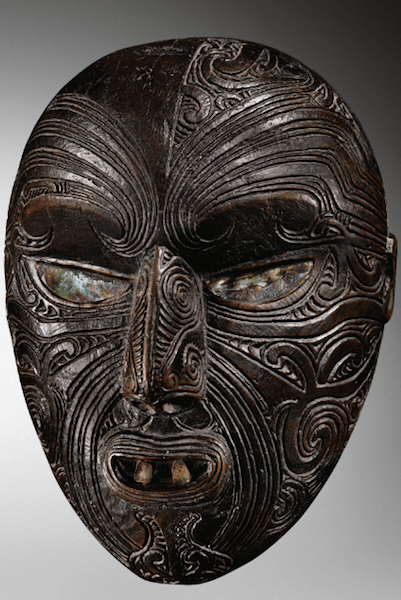
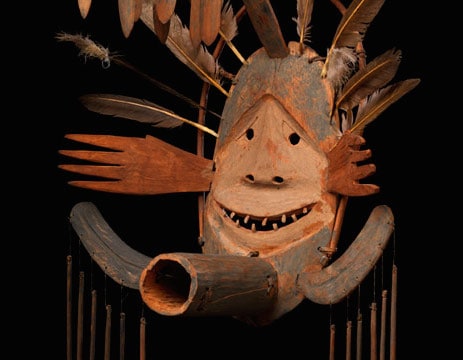
Collectible Primitive Art
Collectors tend to specialize in one art area because there is just so much to learn. Some may even specialize in one old tribal art type like Aboriginal weapons or New Guinea masks.
The most important factor in determining if a piece of ethnographic art is collectible is whether it is for indigenous use or made for sale. For every indigenously used piece of Primitive art, there are a dozen later examples that are later tourist examples. Collectors of tribal Art collect indigenously used pieces.
Primitive Art by Region
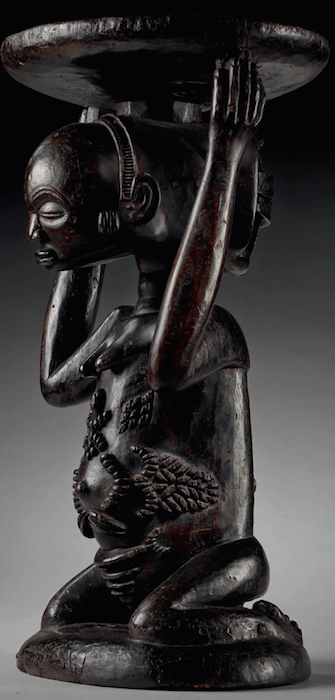
Luba Stool
African Art
African art has the largest number of collectors. This is partly because so many European countries once had colonies in Africa. It is also because Africa produces more sculpture than any other area.
Fakes are quite common in African art and these are not just tourist pieces but pieces made to look older than they are. Due to the number of high quality fakes provenance of pieces is often important.
Africa material often has a very dark or black patina. Some of the oldest material oozes oil from generations of handling.
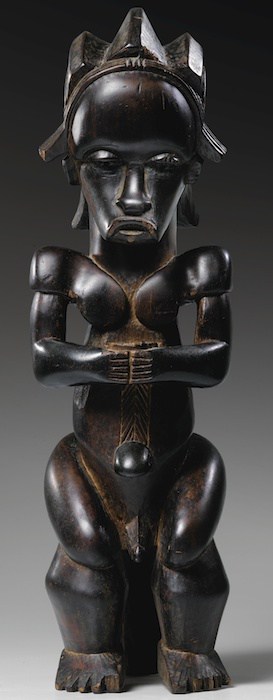
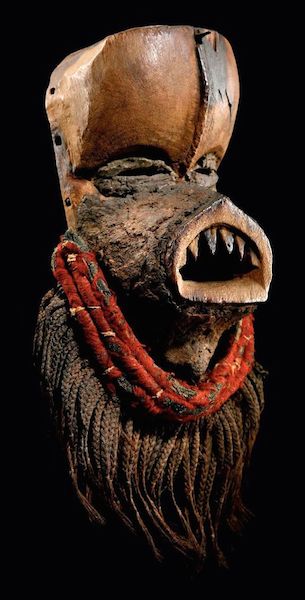
Dan Mask
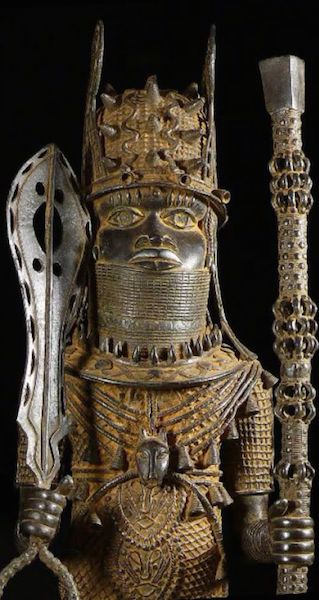
Benin Bronze Sculpture
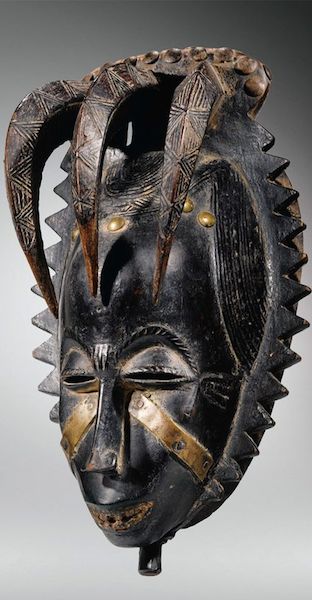
Yaure mask
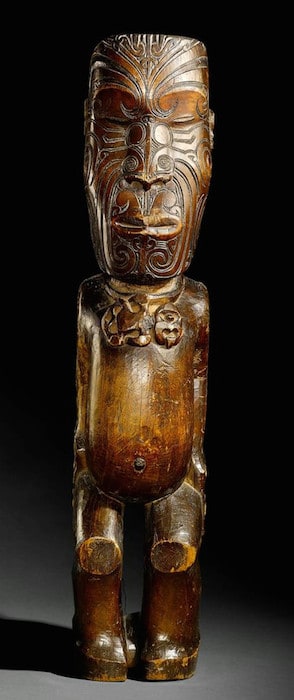
Maori House post figure
Oceanic Art
Oceanic art can be roughly divided into two regions.
Polynesian art which is the most collectible and Melanesian which includes New Guinea and New Caledonia.
Very little sculpture comes from Polynesia and even fewer masks.
The Polynesian material tends to be more refined and better finished and is more valuable.

Yipwon Sculpture Sepik River PNG
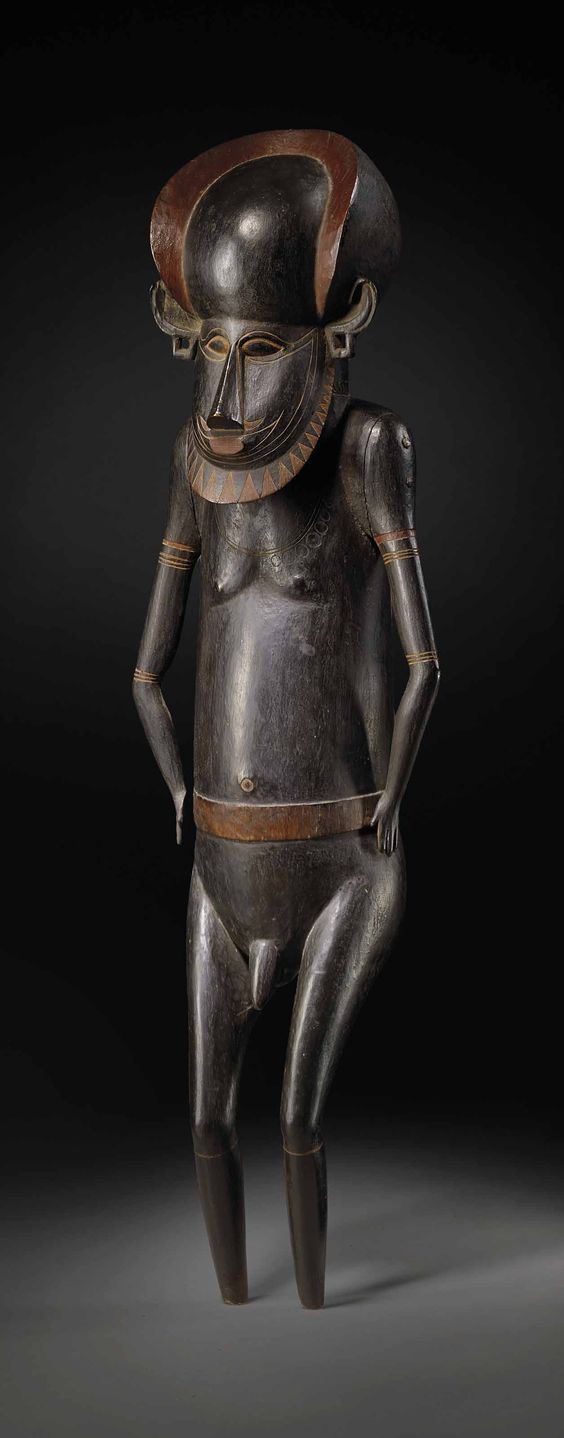
Solomon Island Figure

Easter Island Figure
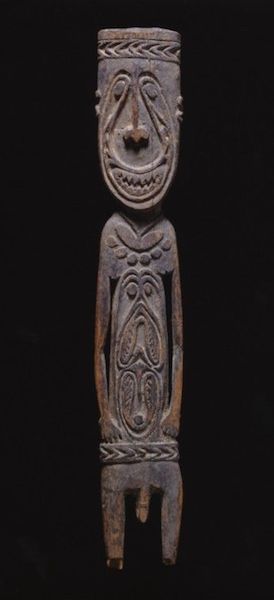
Turama River Sculpture
Papua New Guinea
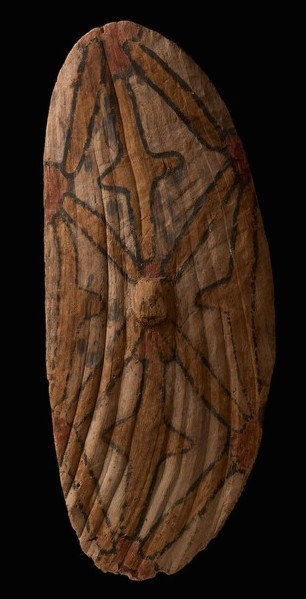
Queensland Rain forest Shield
Aboriginal Art
Aboriginal tribal art has relatively few collectors but these few collectors are passionate. The majority of collectible Aboriginal antique primitive art is weapons. Aboriginal art that is not old or indigenously used can also be very collectible but is not really Aboriginal primitive art.
Some aboriginal art is of a secret and sacred nature and is not shown at museums. It is often not traded in Australia but is often sold in Europe and America.
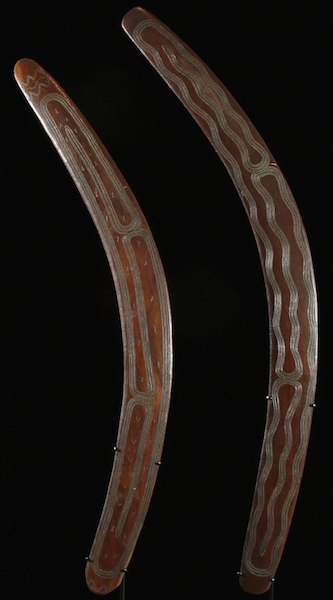
Darling River Boomerangs
Native American and Canadian Art
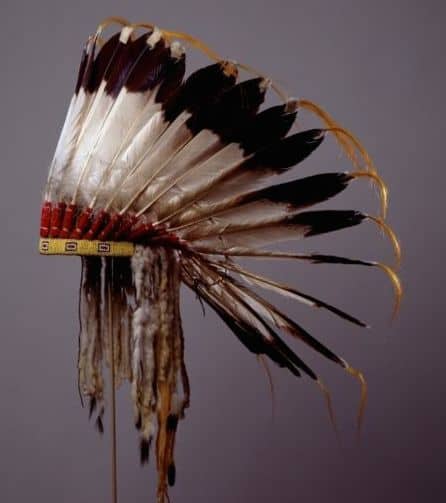
Plains Native American Head Dress
Native American Art
Native American tribal Art can be roughly divided into three main groups.
Plains Art consists mainly of weapons blankets adornments and clothing.
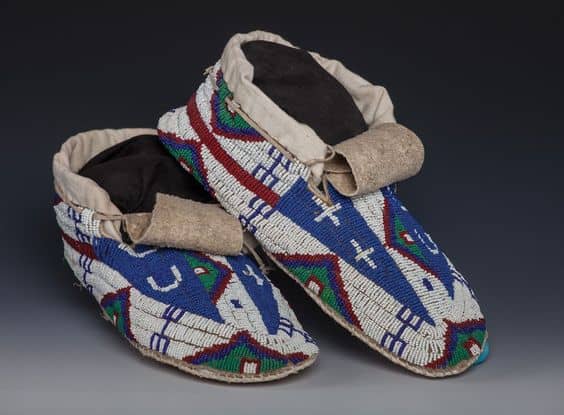
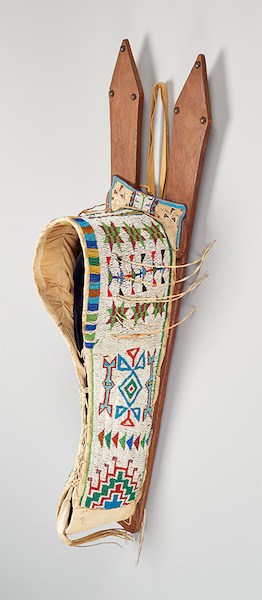
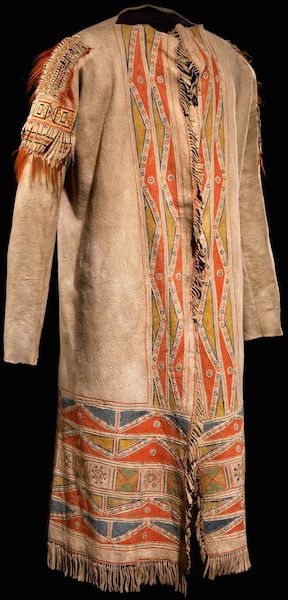
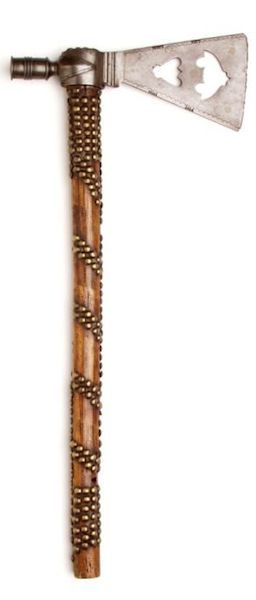
NW Coast Primitive Art
NW coast art produces some of the most sort after sculpture and masks in all of Antique Tribal Art. Some of the best-known works come from the Tlingit, Haida, and Tsimshian.
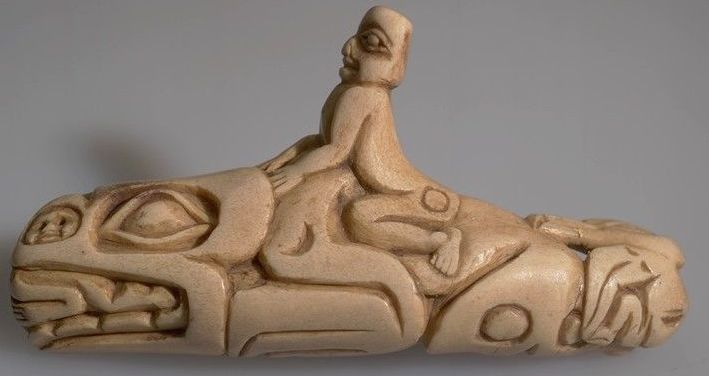
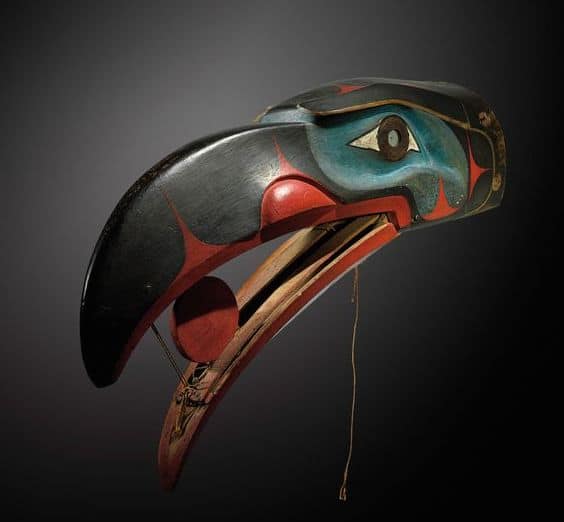
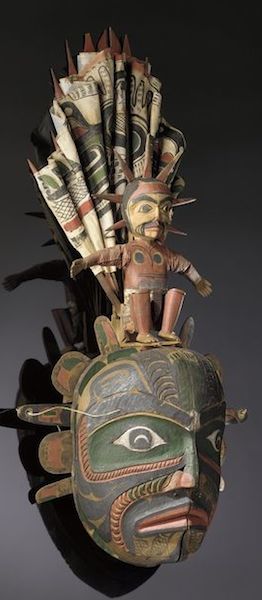

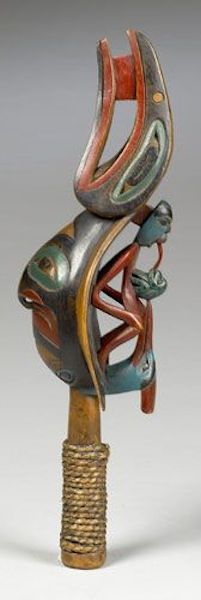
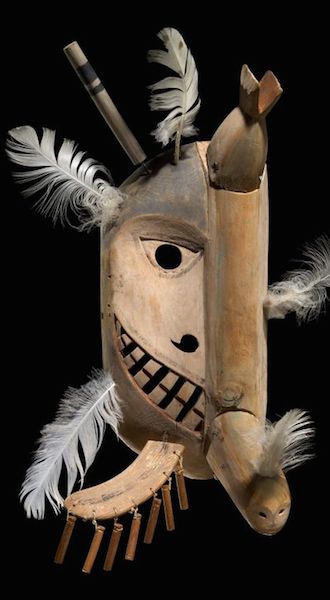
Yu’pik mask
Canadian and Alaskan Tribal Art
Alaska produced some of the most haunting and collectible masks from the Yupik people. Ancient Okvik walrus tusk sculptures are also rare and sort after.
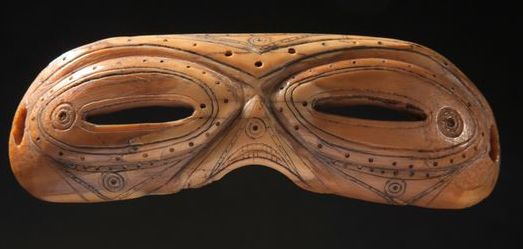
Snow Goggles
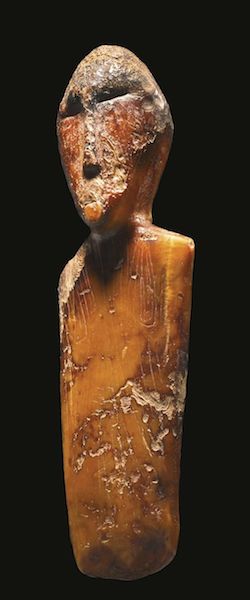
Ancient walrus Ivory sculpture
Primitive Art Value
It can be quite daunting to find out the value of a piece of old Primitive Art. It is best to find a person who specializes. Often dealers will pay well for pieces especially if they are old and indigenously used. Although I specialize in New Guinea and Aboriginal art I have great contacts for African and Native American pieces.
Selling tribal Art
If you are thinking of selling Authentic old tribal Art then you should use a specialist. The majority of antique auctioneers do not know much about primitive Art. As a result, they often describe things wrongly and pieces often drastically undersell. I buy many underpriced pieces of old ethnographic art from auction every year.
All images in this article are for educational purposes only.
This site may contain copyrighted material the use of which was not specified by the copyright owner.
